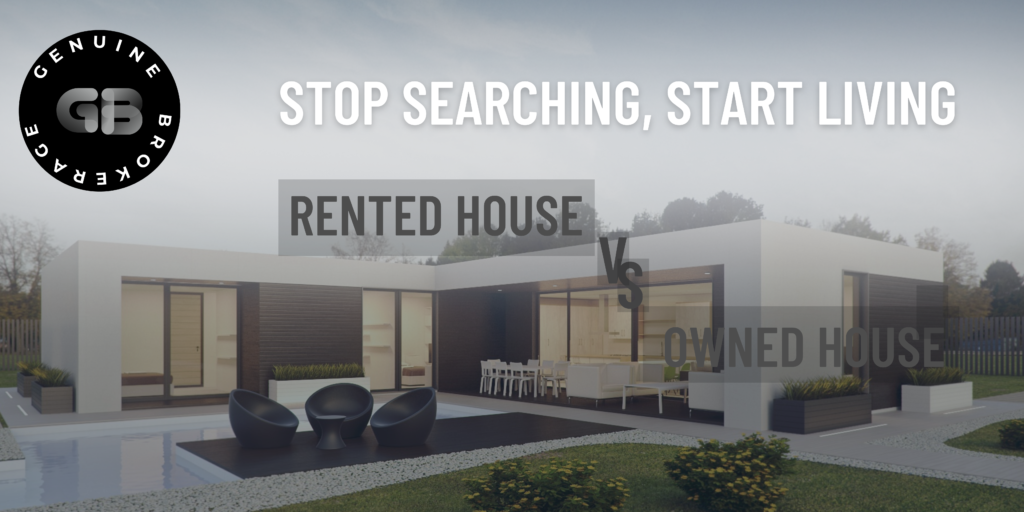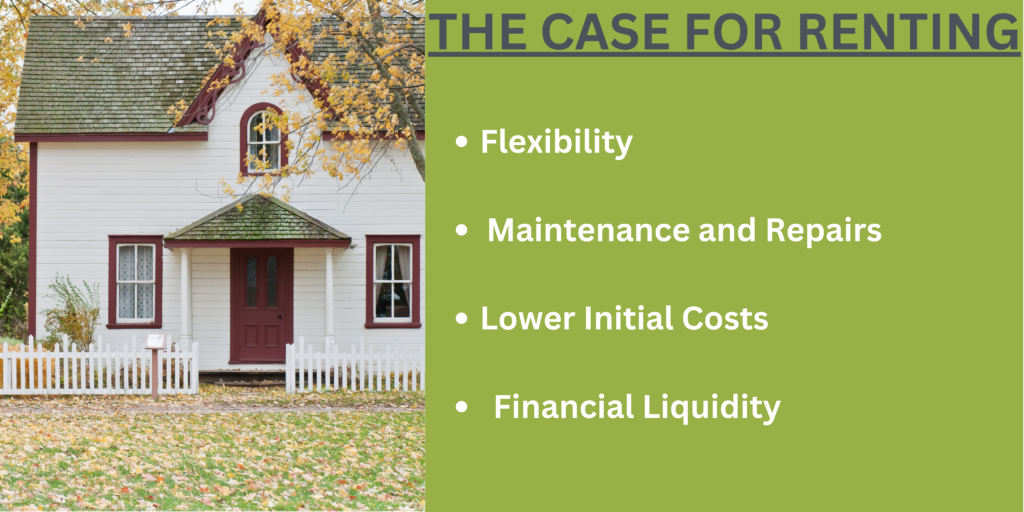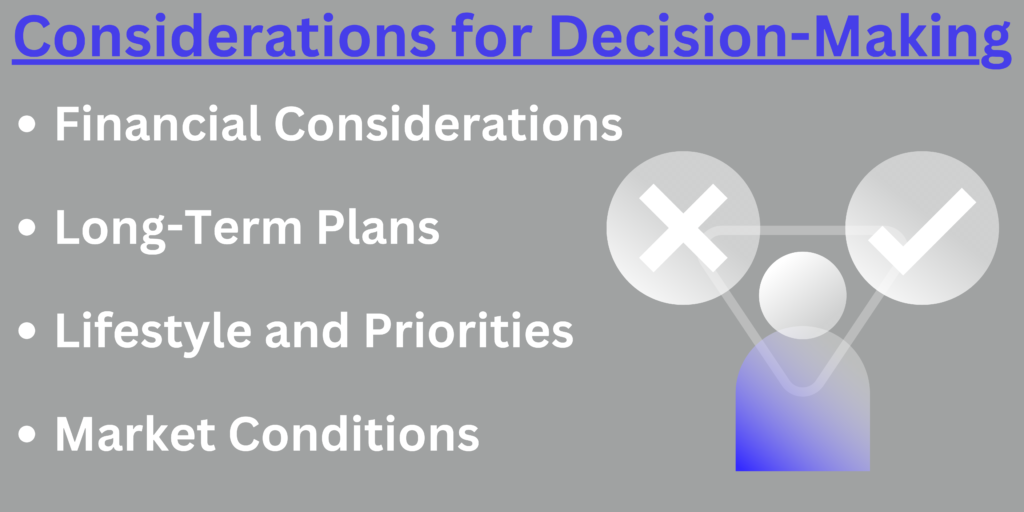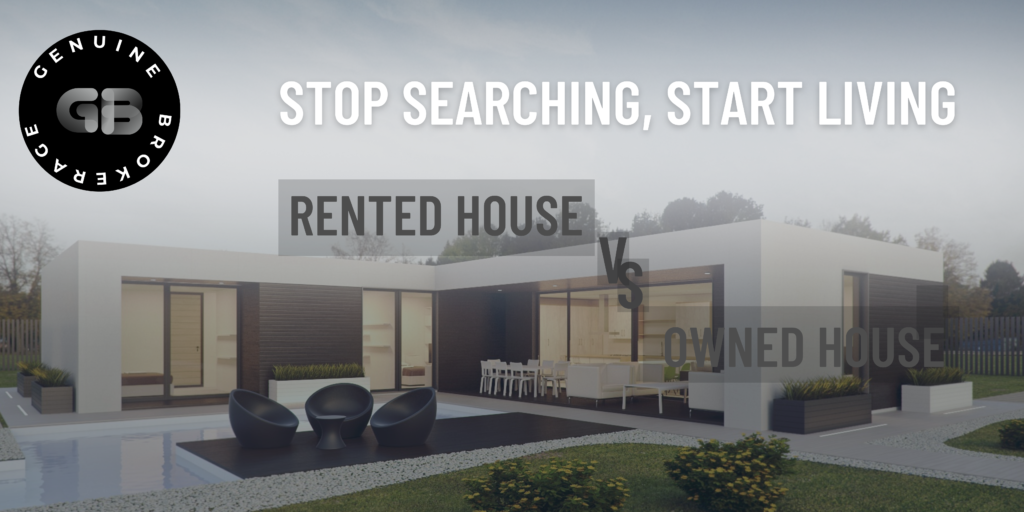
The age-old debate of whether to rent or buy a house continues to puzzle individuals and families alike. Both options come with their own set of advantages and disadvantages, and the decision often depends on various factors such as financial stability, long-term plans, and personal preferences. In this blog post, we will explore the pros and cons of renting and owning a house, helping you make an informed decision based on your unique circumstances.
Real Estate Investing: The Case for Renting

1. Flexibility:
One of the primary advantages of renting is the flexibility it offers. Renting provides the freedom to easily relocate for job opportunities, personal reasons, or a change in lifestyle without the financial burden and time-consuming process of selling a property. This flexibility is especially beneficial for those who are early in their careers or uncertain about their long-term plans.
2. Lower Initial Costs:
Renting typically requires lower upfront costs compared to buying a house. Renters are generally responsible for a security deposit and the first month’s rent, making it a more accessible option for individuals who may not have substantial savings or are not ready to commit to a long-term investment.
3. Maintenance and Repairs:
One of the significant advantages of renting is that maintenance and repair costs are typically the landlord’s responsibility. Renters can enjoy the convenience of not having to deal with unexpected expenses related to fixing appliances, plumbing issues, or other structural problems.
4. Financial Liquidity:
Renting allows for greater financial liquidity as renters are not tied down to a mortgage. This means that money that would otherwise be used for a down payment or mortgage payments can be invested in other ventures or used for various lifestyle choices.
Real Estate Investing: The Case for Owning
Real Estate Investing
1. Building Equity:
One of the most compelling reasons to buy a house is the opportunity to build equity. As homeowners make mortgage payments, they gradually increase their ownership stake in the property. Real estate has historically been a solid long-term investment, and homeownership can be a pathway to accumulating wealth over time.
2. Stability and Predictable Payments:
Owning a house provides a sense of stability and predictability in terms of monthly housing payments. Unlike renting, where landlords can increase rent annually, homeowners with fixed-rate mortgages have a consistent monthly payment, allowing for better budgeting and financial planning.
3. Personalization and Control:
Homeownership grants individuals the freedom to personalize and modify their living space to suit their preferences. From painting walls to remodeling kitchens, homeowners have the autonomy to make changes without seeking permission from a landlord. This level of control over one’s living space can contribute to a greater sense of belonging and satisfaction.
4. Long-Term Investment:
Real estate has historically appreciated over time, making homeownership a potential long-term investment. While market conditions can vary, owning property can offer a valuable asset that can appreciate and provide financial security in the future, especially during retirement.
Real Estate Investing: Considerations for Decision-Making

1. Financial Considerations:
Evaluate your financial situation, including your savings, income stability, and credit score. Assess the costs associated with renting versus buying, such as monthly payments, maintenance, property taxes, and insurance.
2. Long-Term Plans:
Consider your long-term plans and how they align with homeownership. If you anticipate staying in a particular location for an extended period and value the stability and investment potential of homeownership, buying may be a suitable option.
3. Lifestyle and Priorities:
Examine your lifestyle preferences and priorities. If flexibility and the ability to relocate easily are essential to you, renting may be the better choice. On the other hand, if you value stability, control over your living space, and the potential for financial growth, homeownership may be more appealing.
4. Market Conditions:
Keep an eye on current real estate market conditions. In some cases, renting may be more cost-effective than buying, especially in areas with high property values. Conversely, in a buyer’s market, purchasing a home may offer favorable conditions.
Conclusion:
The decision between renting and owning a house is a highly personal one, influenced by various factors such as financial stability, lifestyle preferences, and long-term plans. Both options have their merits, and individuals must carefully weigh the pros and cons before making a decision. Ultimately, whether you choose to rent or own, it’s essential to make a decision that aligns with your current circumstances and future goals.

